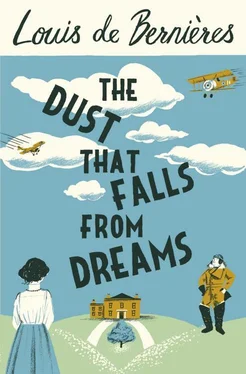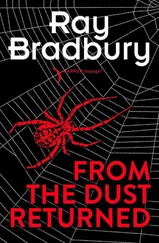He had the good fortune to befriend the captain of the ship. Captain Franklin had a naval beard, and very much resembled the King, causing Daniel to reflect how much he would have been admired by his mother-in-law. Franklin had served on HMS Hood during the war, and the two men felt comfortable with each other, as those who have seen action commonly do. Captain Franklin also took a liking to Esther, who therefore spent time up on the bridge gazing out of the windows at the sea whilst the former explained all the workings of the ship to her father, let him take the wheel, and pull on the lever that signalled engine speed to those below.
Daniel had guided tours of the machinery from the engineers and stokers, and was repeatedly amazed by the size of the cranks and pistons, rods and shafts. The boiler room was as hot as Hell, manned by sweating men, wild-eyed sailors who worked like devils. The engines of aeroplanes seemed such bijou contraptions by comparison that Daniel felt obscurely ashamed of having been so fascinated by them.
Rosie only sprang to life during those hours when the ship was in port. Even so, she felt quite nauseous when she got onto land and found that it was not moving. She staggered as if to allow for movement that was no longer occurring. In Gibraltar they went to see the apes, and Rosie had a handkerchief snatched out of her hand when she was just about to blow her nose. Daniel tried to retrieve it, but was no match for the ribald, scampering thief, which skipped away and bared its teeth at him. There was a left-handed ape that liked to pick up its excrement and hurl it at people, causing gratifying screams and panics.
In Valetta, having learned their lesson in Gibraltar, they left the impractically huge perambulator on the ship, and Daniel hoisted Esther onto his shoulders. They strolled around the small walled town in a very short time, and then made another circuit. The place was full of British sailors in sparkling white uniforms, and vast grey warships lay at anchor in the harbour. Daniel insisted on going down there to look at the seaplanes. The heat radiated from the stones, and the light cut precise black shadows. Rosie felt the heat entering the bones and muscles of her body, freeing both her limbs and her spirit. After her eyes had adjusted to the light, she began to feel her mood lift with every step. The distance from home, and all that home implied, was releasing her from the loops that had been going round in her thoughts for so many months. She thought of Ash’s letters and uniform, wrapped up in tissues in the small suitcase, and she thought of her madonna and child, and the image of them in her memory no longer had any great reality.
They ordered tea at a cafe, and Rosie said to Daniel, ‘Isn’t this wonderful? I haven’t felt as happy as this since I don’t know when.’
‘I’ve never seen you so happy,’ replied Daniel, wondering at the new vivacity that made her look younger and more beautiful. The bright light made her blue eyes seem especially luminous.
‘I wish we could stay here,’ said Rosie. ‘It’s paradise.’
‘Ceylon’s even more of a paradise,’ said Daniel, ‘once you’re up in the highlands. Malta’s terribly dry and baking hot in the summer. I think we must be here at the best time of year.’
In Port Said, at precisely the moment that they were passing the statue of de Lesseps, Esther, Rosie and the travelling nurse picked up gippy tummy before even leaving the ship, and so Daniel transferred them for two nights to the Marina Palace Hotel, where they sat on the veranda of their room watching the liners arriving and departing. Because Ali Bey had relatives to visit, Daniel went about town on his own, before realising quite quickly that the level of harassment and aggression from both beggars and merchants was more than one man should have to cope with, so he went back to the ship and waited for Captain Franklin to finish filling in the port authority’s documents. Then the two men ventured out and made a fair fist of standing up for themselves, fending off those who wanted to know whether they wanted to meet their sisters or buy ‘feelthy pictures’, or hashish. Captain Franklin assured Daniel that meeting a sister in Egypt was the one infallible way of picking up syphilis, and the feelthy pictures were never quite as feelthy as one might have hoped. The streets were crawling with tiny Arab boys and girls who would do anything whatsoever for money, and Daniel found it altogether depressing and vile. He and the Captain drank prodigious quantities of sweet mint tea out of small glass cups, and talked about the war, which already seemed a peculiar dream. They devoted much ingenuity to avoiding the small boyagis who would dart out, put a blob of polish on your shoe, and then offer to polish it off. There was many an obstinate and irritated European walking about with such a blob drying and congealing on his toecap.
Daniel bought another fez for himself, and for Rosie a small enamelled silver camel whose hump opened to reveal a hiding place for a ring or a brooch. For Esther he bought embroidered slippers with turned-up toes, and a tiny scarlet jacket with a high collar.
The Suez Canal by day was a hell of flies and heat for all of them, but at night it was wondrous and magical to stand at the prow and watch the waters and the banks by the beam of the immense searchlight. Once they were out through the Gulf of Aden, and steaming at first for Bombay and then for Colombo, the excitement and pleasure grew in all of them. They slept on deck to escape the insufferable heat below, and suffered very little from sickness, since the waters were unusually placid off the coast of Socotra. They had been warned to expect it to be worse than the Bay of Biscay, especially as the south-west monsoon was due within weeks. In the evenings, as the small ship’s orchestra played popular waltzes and polkas, Daniel played deck quoits with Ali Bey who, by his own account, worked in the court of King Fouad, and had been educated in Ceylon whilst his parents had been there in exile. It turned out that not only was he a Francophile, but he also had an astonishing knowledge of the novels of Sir Walter Scott, and an insatiable need to discuss them. He and Daniel walked the promenade deck with Esther, doing ‘One two three whee’ until their arms ached. Rosie began to find her sea legs at last, and liked to lean over the ship’s rail with the wind whipping her hair about her face. She felt well enough now to sit in a deckchair in the shade of a canopy and reread the books on Ceylon that they had brought with them. One of the passengers lent her a novel by Mrs Oliphant, and she read that too. She played bucket quoits and bullboard with Esther to keep her amused.
Esther forced her father to make up stories day in and day out, until he thought his brain was going to rattle in its bearings from the wear and tear of continual invention. One day he told Esther to tell him a story for once, and she astonished him by coming up with a narrative that was both interminable and senseless, brimful of the natural surrealism of the child. When he fell asleep, she merely continued to sit in his lap and tell it to him while he snored, until she too nodded off.
By the time they reached Colombo, Daniel had found a new harmony with his wife, and a deeper mutual love with his daughter. The evening before their arrival, after the ship’s last formal dance, when Esther was in bed and her parents were leaning over the rail on the promenade deck, looking at the southern stars, Rosie said to Daniel, ‘Don’t you think it’s time that Esther had a little brother or sister?’ and his heart had jumped in his chest.
He looked at her sideways and said, ‘It would help us make a proper new start.’ Her eyes were glowing in the half-dark.
Читать дальше












